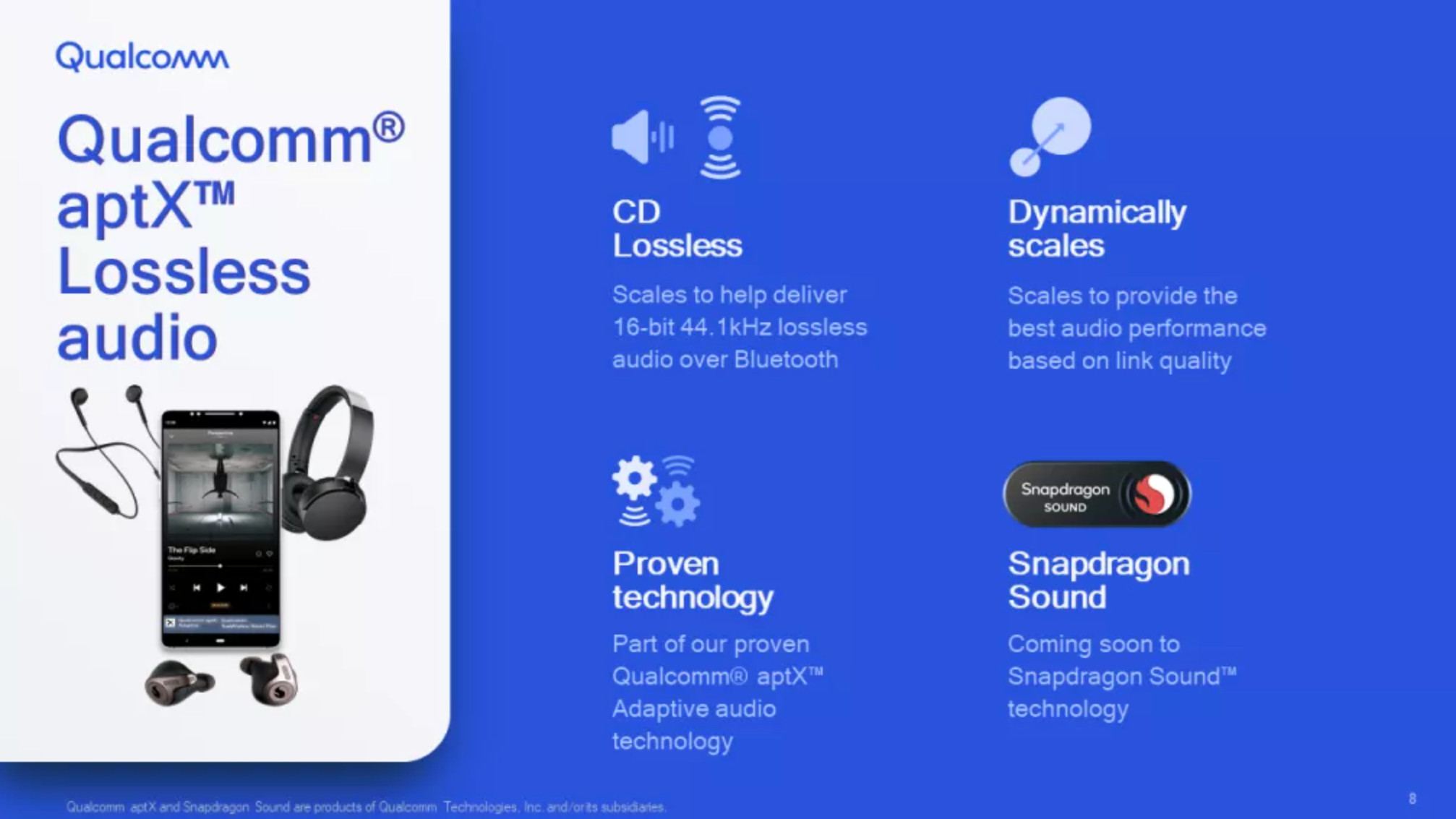Qualcomm's aptX Lossless could transform the way wireless headphones sound
CD-quality lossless audio is coming to wireless headphones

CD-quality lossless audio is finally coming to wireless headphones, as Qualcomm announces aptX Lossless, which the company says is capable of delivering 16-bit.44.1kHz audio over Bluetooth.
aptX Lossless is a new feature of Qualcomm's Snapdragon Sound technology, which works on mobile platforms including Snapdragon 888, headphone chips like the QCC3065x SoC (system on a chip), and the company’s audio codecs, which include Qualcomm Active Noise Cancelling and aptX adaptive.
- The best wireless headphones you can buy today
- Hi-res audio: everything you need to know
- Read our Apple Music review
By optimizing core wireless connectivity and audio technologies within aptX Adaptive that work together to auto detect and scale-up, aptX Lossless has the ability to to deliver CD-quality audio when users are listening to lossless music files – and when the radio frequency conditions are suitable.
While aptX Adaptive is capable of delivering hi-res audio of up to 24-bit/96kHz, this is the first time the technology with be truly lossless.
So, what does this actually mean for music lovers? Qualcomm says the audio will be "mathematically bit-for-bit exact", which means you won't be losing any data over a wireless connection. Until now, the necessary bit rate to deliver this kind of high quality audio hasn't been available over Bluetooth.
The bad news is that aptX Lossless isn't coming to existing wireless headphones and earbuds. Qualcomm says the technology is expected to be available in late 2021, and that it'll require new hardware, from the phone you're using to stream your music from to the headphones you listen with. Devices that support the technology aren't expected to hit the shelves until early 2022.

Analysis: why hi-res audio matters
According to Qualcomm, aptX Lossless will "deliver sound the way the artist intended", so you can expect a sound that closely replicates the quality that the musicians and engineers were working with in the studio at the time of recording.
Sign up for breaking news, reviews, opinion, top tech deals, and more.
That may sound like something only hardcore audiophiles would care about, but hi-res audio has been growing in popularity over the last year, with major music streaming services like Apple Music and Amazon Music HD providing lossless streaming to their subscribers at no extra cost.
Until recently, lossless audio was seen as a premium feature that you would have to pay extra for – but music lovers are increasingly interested in getting the most out of their streams.

It's not just about streaming services, either. While wireless earbuds and headphones used to come with a caveat of poor audio quality, improvements in Bluetooth technology and hardware means that headphones without cables and true wireless earbuds are capable of rivaling even the best wired over-ear headphones. And that's partly down to consumer demand.
According to Qualcomm's 2021 State of Sound survey, sound quality is the most critical purchase driver across all audio devices. Over half of the survey's respondents said that they were seeking either lossless or high-resolution audio quality, while "64% saying that lossless audio quality is likely to influence their decision to purchase wireless earbuds".
So, hi-res audio is hardly a niche feature anymore. And while naysayers will claim that the difference in quality is barely noticeable, we'd liken the experience of listening to lossless audio to wiping a dirty window and letting the light pour in for the first time.
As long as you have the right hardware – which will soon be even easier thanks to aptX Lossless – CD-quality music and higher should reveal new details in your music that you may have never noticed before. For a music lover, whether you consider yourself an audiophile or not, that seems worth the effort of investing in some new kit come 2022.

Olivia was previously TechRadar's Senior Editor - Home Entertainment, covering everything from headphones to TVs. Based in London, she's a popular music graduate who worked in the music industry before finding her calling in journalism. She's previously been interviewed on BBC Radio 5 Live on the subject of multi-room audio, chaired panel discussions on diversity in music festival lineups, and her bylines include T3, Stereoboard, What to Watch, Top Ten Reviews, Creative Bloq, and Croco Magazine. Olivia now has a career in PR.